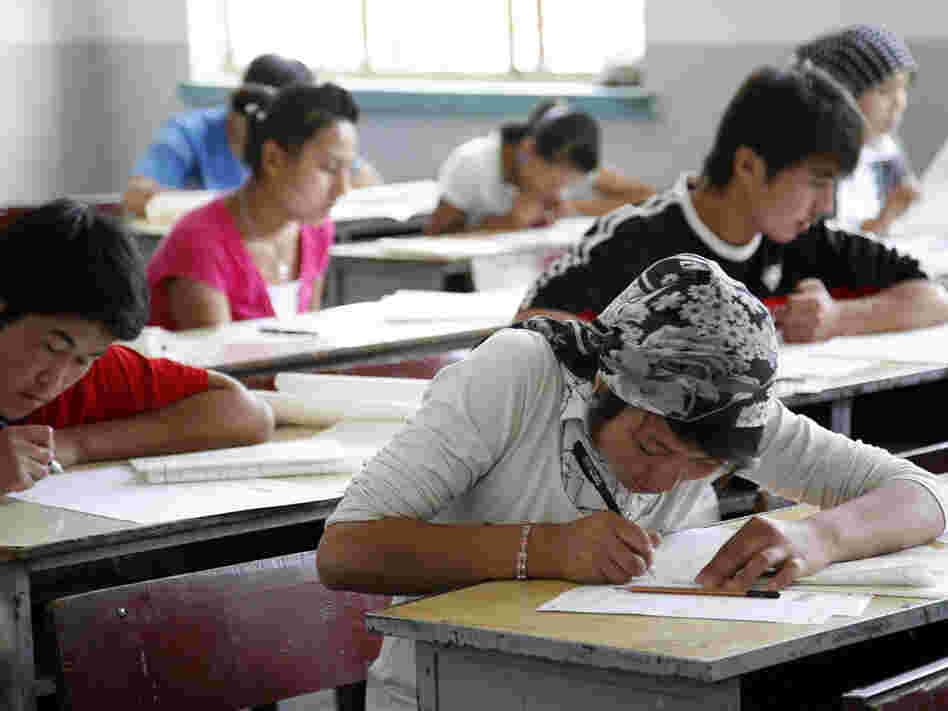At many schools around the world it is time for students to
choose their classes for the upcoming year. A number of websites and ‘experts’
are asking and answering the following question.
How important are the AP/IB/A
Levels etc. in the evaluation of students trying to attend highly selective
schools in the US?
In this entry, I will try to give some background and
commentary on the AP. In subsequent entries,
I will address other exams used around the world.
I.
All language is ideological
AP courses have been around for several generations. For
quite some time they led a relatively quiet life in the ‘gated communities’ of
private schools or highly affluent public schools in posh suburbs or in the few
magnet schools that began to crop up in major cities. (The subsequent decision
on the part of politicians and educational leaders to stop creating magnet
schools in most places in the US will be another topic for a future blog
entry.)
Today, APs are a global phenomenon. Students take APs on 6 continents,
and schools offer APs or some form of advanced testing at thousands of high
schools across the US. Here are two useful data points:
- · 25 percent of US high school graduates take at least one AP examination
- · Every year, millions of high-school students enroll in the courses that are offered in 39 different subjects. They do so at an annual growth rate almost ten times the yearly percentage increase in the number of high school graduates. (Taken from John Tierney’s blistering critique of APs.)
This globalization has had, as globalization in all its
forms, both intended and unintended consequences. What was once a program
designed for the elite has now become saturated through the educational system.
For some, this expansion has been a source of celebration. Students can
demonstrate high-level competency is a huge range of subjects. Some of these
students can graduate from university early, saving huge sums of money. And a
program once limited to the few who were often from the deep end of the
economic pool is now open to many students of very limited economic means.
For others, the expansion of APs into the curriculum has
forced teachers to follow a set curriculum that is based o scoring well on a
standardized test. In what is a great irony, a number of the posh schools in
which APs were first introduced have discontinued them in certain subject
areas. They have done so as they feel their schools offer courses that are in
fact harder and more open-ended educational experiences. And there are other
educators who think the standardization of knowledge is anathema to the real
purpose of education: the instillation of lifelong learning and the development
of creative and critical thinking and problem solving skills.
The battle lines have been drawn and there is no shortage of
name-calling and hyperbolic prose attacking the other side. But before
examining the merits of the arguments of both sides a pragmatic question should
come first. Do APs do what they were designed to do?
II “Survey Says”
The tests (and the courses) were designed to give students
an opportunity to bypass introductory lectures and to earn college credit.
According to the data put out by both the College Board and outside sources,
APs do indeed teach students material covered in introductory lecture classes
at most colleges and universities. The most comprehensive independent study of
APs: AP: A Critical Examination of the Advanced Placement Program is largely unread. This is in part due to its high price; more importantly, it takes a balanced view of the topic, and a book which does not join one or the other of the two opposed sides on the issue of the effectiveness of APs and testing in general is not useful for the ideologues. Nevertheless, the critical issue about APs is clearly summarized in a review of the book in Inside HigherEducation: ‘the research studies
in the book suggest that for most well-prepared students (and, increasingly, it
is important to note that not all students in the program are well-prepared),
AP tends to offer rigorous courses that advance their knowledge of the subject
matter in meaningful ways”. In case there are skeptics who feel that research
demonstrating the value of APs is tainted by affiliations with the College
Board, I list the authors of the study and their positions:
Philip M.
Sadler is the F. W. Wright Senior Lecturer in Astronomy at Harvard University
and head of the Science Education Department at the Harvard-Smithsonian Center
for Astrophysics. Gerhard Sonnert is a research associate at the
Harvard-Smithsonian Center for Astrophysics and an associate of the Harvard
University Physics Department. Robert H. Tai is an associate professor of
education at the University of Virginia’s Curry School of Education. Kristin
Klopfenstein is a senior researcher at the University of Texas at Dallas Texas
Schools Project.
Given the
research and the credentials of the researchers, I would argue that there is
enough proof to confirm that APs are a wonderful supplement to highly motivated
students around the world. And yet, as noted above, APs are surrounded by controversy.
In subsequent parts of this series I will examine some of critiques of APs and
standardized testing in general, and try to demonstrate how to approach course selection
on the part of secondary school students.







No comments:
Post a Comment